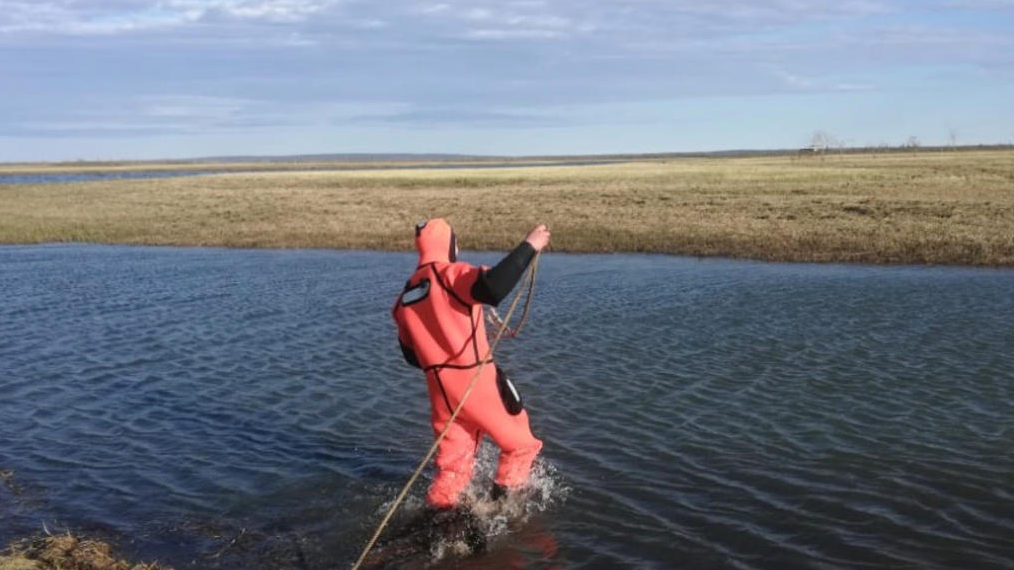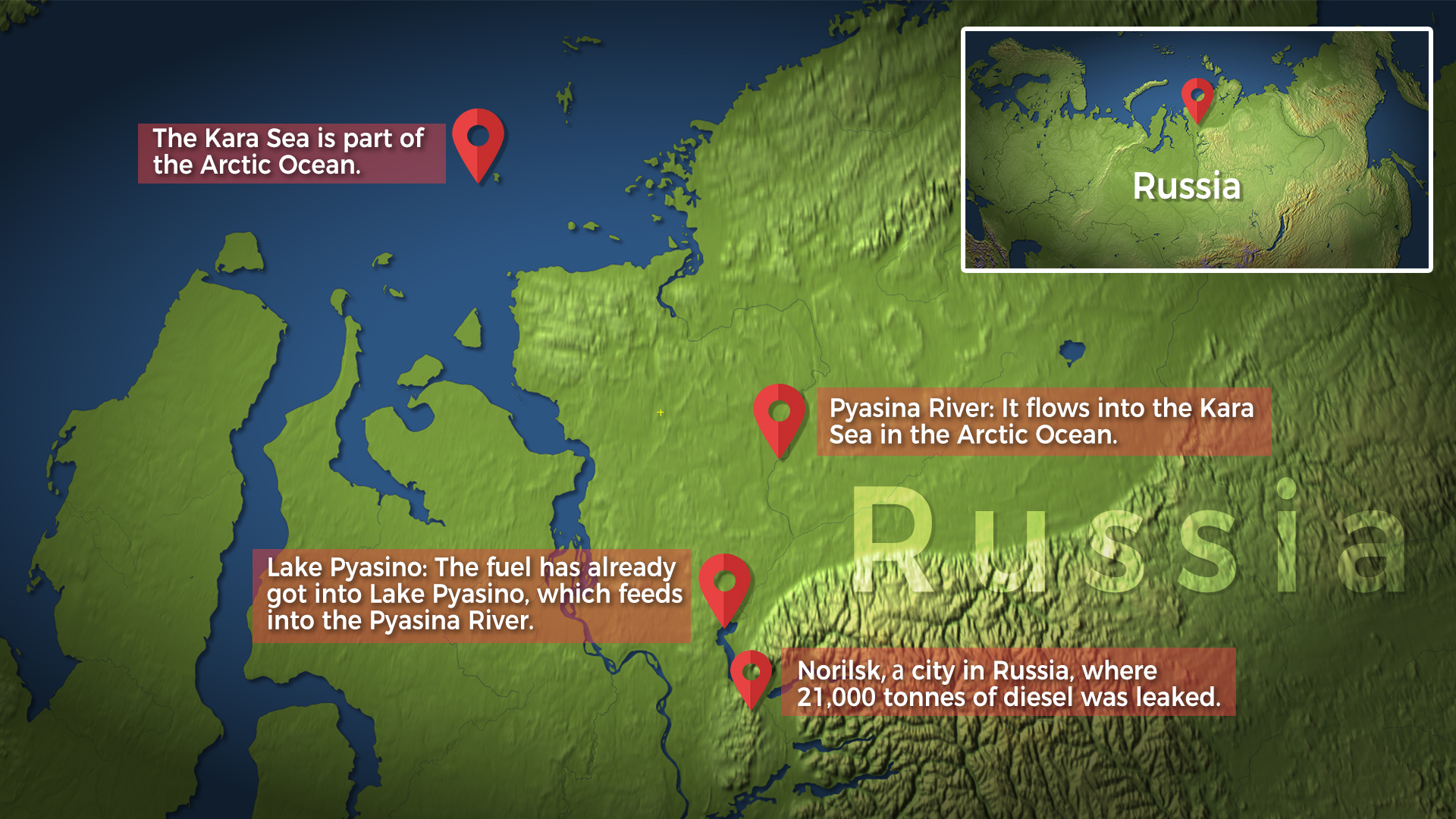
Cleaning the river after a huge leak of diesel fuel due to an accident at a power plant outside Norilsk, in Krasnoyarsk region, Russia, June 8, 2020. /Reuters
Cleaning the river after a huge leak of diesel fuel due to an accident at a power plant outside Norilsk, in Krasnoyarsk region, Russia, June 8, 2020. /Reuters
Diesel fuel from a major spill in the Russian Arctic has reached the waters of a pristine lake that serves as the basin for a river flowing into the Arctic Ocean, a senior official said on Tuesday.
A fuel tank at a power station in the city of Norilsk lost pressure in late May and leaked 21,000 tonnes of diesel into rivers and subsoil, an incident Greenpeace compared to the 1989 Exxon Valdez oil spill.
Authorities are trying to clean up and contain the fuel, which has reached Lake Pyasino, about 20 kilometers (12 miles) north of Norilsk.
"The fuel has got into Lake Pyasino," Alexander Uss, governor of the Krasnoyarsk region, told Russian state TV.
It was important to prevent it from getting into the Pyasina River, which flowed north. That could be possible, he added.

Lake Pyasino, about 70 kilometers long, feeds into the Pyasina River, which flows into the Kara Sea in the Arctic Ocean.
This would have a negative effect on the water resources, on the animals drinking that water, on the plants growing on the banks, said Vasily Yablokov, Greenpeace Russia's climate project manager.
Norilsk, a remote city of 180,000 situated 300 kilometers (190 miles) inside the Arctic Circle, is built around Norilsk Nickel, the world's leading nickel and palladium producer.
Uss said the catastrophe was the worst of its kind in the Arctic in modern Russian history and that questions needed to be answered about why it took the company two days to inform authorities and why the initial explanation proved to be wrong.
Norilsk, which has pledged to pay the clean-up costs, has said it believes the accident was caused by thawing permafrost which undermined the foundations of the storage tank.
President Vladimir Putin last week declared a state of emergency in the region and criticized authorities for what he said was a bungled response to the incident.
(With input from Reuters)